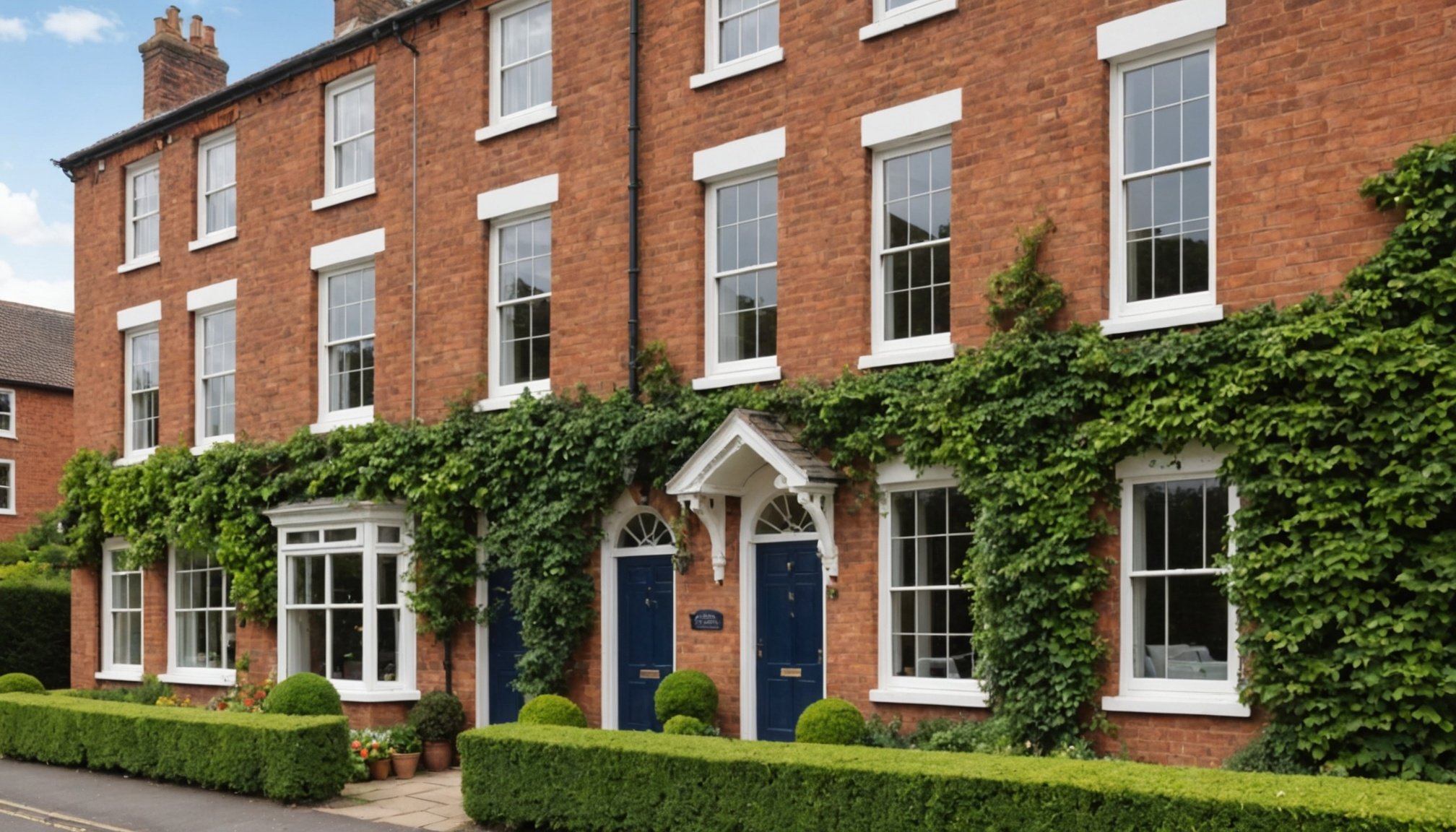Understanding Planning Permissions
Navigating planning permissions is crucial when considering converting residential properties into bed and breakfasts (B&Bs) in the UK. The process begins with applying for the appropriate permissions, determined by your local planning authority. Depending on your project, you may need a ‘change of use’ planning permission to accommodate the transition from a residential dwelling to a business operation.
Various types of planning permissions are required for B&B operations. This includes consent for building extensions or making substantial alterations. It’s crucial to understand these UK property regulations because the specifics can vary depending on local councils and the location of the property.
Also to read : Evaluating the Long-Term Durability of UK Real Estate Investments in the Face of Climate Change
Operating a B&B without the necessary permissions can have serious consequences. Penalties include enforcement action by local authorities, which may necessitate reversing unauthorised changes or even lead to hefty fines. Awareness of the regulations reduces risks and ensures compliance with local laws. Non-compliance can severely impact your business’s viability and reputation within the community.
Early engagement with local planners and clear understanding of the permissions required can save time and resources, and it provides peace of mind as you embark on creating a successful B&B. It’s prudent to invest time upfront to avoid complications later in your venture.
In parallel : Unveiling the Hidden Risks: Investing in UK Farmland for Non-Agricultural Purposes
Health and Safety Regulations
Ensuring that your bed and breakfast (B&B) meets health and safety regulations is indispensable for providing a safe experience for your guests. These regulations are not only a legal obligation but also a trust-building measure with your clientele.
Essential Health and Safety Standards
To ensure B&B compliance, owners must adhere to essential health and safety standards that cover a wide array of areas like hygiene, structural safety, and accessibility. The focus is on maintaining a hospitable environment without compromising on safety.
Fire Safety Regulations
Fire safety is a critical aspect. Regulations dictate the deployment of fire alarms, extinguishers, and clear evacuation plans. Emergency procedures should be communicated effectively to guests, and regular drills are advisable. These procedures are vital not just for compliance but also for reassuring guests.
Regular Inspections and Maintenance
Conducting regular inspections ensures continuous compliance with health and safety standards. Maintenance of facilities, such as ensuring electrical wirings are up to code and plumbing is in good condition, is essential. These tasks not only fulfil legal requirements but also enhance guest satisfaction and safety.
By adhering to stringent health and safety regulations, B&B owners can provide a worry-free stay, fostering a positive reputation and enhancing guest loyalty.
Insurance Requirements
Establishing a bed and breakfast (B&B) involves securing appropriate insurance requirements to safeguard the property and its operations. Business insurance is fundamental, providing a protective shield against unforeseen incidents. Key types include liability insurance and property insurance.
Types of Insurance for B&Bs
-
Liability Insurance: This covers potential claims for injuries or accidents occurring on the premises. It is vital for ensuring guest safety and maintaining trust.
-
Property Insurance: Designed to cover building and contents against damage or loss. Importantly, B&B owners may need to adjust their existing home insurance to accommodate business activities. This transformation typically requires an endorsement to cover risks associated with operating a B&B.
Understanding the nuances of these insurance types prevents financial loss and legal complications, allowing owners to focus on enhancing guest experiences. Thoroughly reviewing policy terms and seeking professional advice can assist in choosing the appropriate coverage. Balancing protection with cost-efficiency aligns with proactive business management. Compliance with insurance requirements underscores a B&B’s commitment to reliability, fostering a secure environment for guests and peace of mind for owners.
Business Licenses and Permits
Starting a bed and breakfast in the UK demands securing appropriate business licenses and B&B permits. Engaging with local regulations is crucial, as these requirements vary across different regions.
To embark on this journey, carefully examine the local authority’s prerequisites for business licensing. Generally, meeting health and safety norms, as well as accommodation quality standards, is a typical requirement. An effective approach includes early communication with local councils, ensuring you are aware of all regulations affecting your B&B’s operation.
Applying for necessary permits involves submitting detailed plans for your business, which often must align with existing zoning laws. Be prepared to demonstrate compliance with specific building and fire safety regulations, ensuring the property’s suitability for accommodating guests. Some procedures may also include consultations with neighbours, particularly if changes impact the community.
Examples of varying local regulations might involve stricter conservation area rules or noise restrictions in densely populated locales. Adapting to these differences ensures smoother compliance processes and establishes goodwill with regional authorities. Understanding and navigating this landscape of business licenses and permits is essential for legally operating a B&B, aligning with both the community’s expectations and the law.
Tax Implications
Navigating the tax implications of operating a bed and breakfast (B&B) is vital to maintain compliance and financial health. Understanding these obligations helps owners better manage their business activities within the law’s framework.
B&B Taxation Overview
Operating a B&B requires careful attention to B&B taxation laws. B&B owners must account for income generated through renting rooms, as it affects business tax requirements. Keeping detailed financial records ensures accuracy in reporting and calculating taxes.
VAT Registration and Thresholds
Value Added Tax (VAT) is a crucial element for B&B businesses that exceed specific revenue thresholds. If a B&B’s taxable turnover reaches the threshold (currently set at £85,000), owners must register for VAT and comply with its regulations. Registering for VAT involves charging this tax on taxable sales and may require changes in pricing strategy.
Tax Reliefs and Allowances
UK property owners operating B&Bs can benefit from several tax reliefs and allowances. The Rent-a-Room Scheme, for example, allows qualifying property owners to earn tax-free income up to a certain limit by letting furnished accommodation in their homes. Understanding these allowances and seeking professional tax advice can optimise taxation efficiency.
Practical Tips for Compliance
In the fast-paced world of bed and breakfast operations, staying compliant requires vigilance and resourcefulness. Here are some essential B&B compliance tips to keep your business on track.
Staying Updated with Regulations
Regulations governing B&Bs can change, impacting how you operate. Regularly reviewing updates from local authorities, subscribing to industry newsletters, and attending relevant workshops can ensure you’re always informed. Being proactive in adjusting your practices according to new rules helps maintain compliance and avoid potential legal pitfalls.
Engaging with the Community
Local community engagement can be incredibly beneficial. Forge connections with neighbouring businesses and residents to foster goodwill and gain insights into local needs and expectations. Building a supportive community network not only aids in compliance but can enhance your B&B’s reputation and guest experience.
Leveraging Legal Resources
Seeking legal advice is crucial in navigating complex regulations. Consult with lawyers specialising in hospitality law for tailored guidance. Online platforms offering advice can provide valuable insights, yet engaging directly with professionals ensures comprehensive understanding and application.
By embracing these best practices, B&B owners can effectively manage compliance challenges, paving the way for a successful and sustainable hospitality venture.
Case Studies and Success Stories
Exploring bed and breakfast success stories offers valuable insights into effective compliance strategies. By examining real-life examples, aspiring B&B owners can learn from successful operations and apply these lessons to their ventures.
Real-Life B&B Examples
One notable example involves a charming B&B in the Cotswolds, which navigated the planning permission process seamlessly. By engaging with local authorities early, they avoided delays and secured necessary approvals. This proactive approach was crucial for establishing their business within the framework of UK property regulations.
Lessons Learned from Common Pitfalls
A key lesson is avoiding assumption-based decisions. A Devon-based B&B faced complications due to overlooking health and safety regulations. Their experience highlights the importance of thorough research and consultation with experts to prevent costly mistakes.
Innovative Compliance Approaches
Innovative strategies also come into play. A Scottish B&B used community engagement to enhance their B&B compliance. By collaborating with local businesses for shared safety resources, they ensured fire safety regulations were met, showcasing how creative solutions can aid in compliance.
These stories illuminate practical approaches for overcoming typical hurdles, demonstrating how attention to detail and community ties foster both compliance and success.

